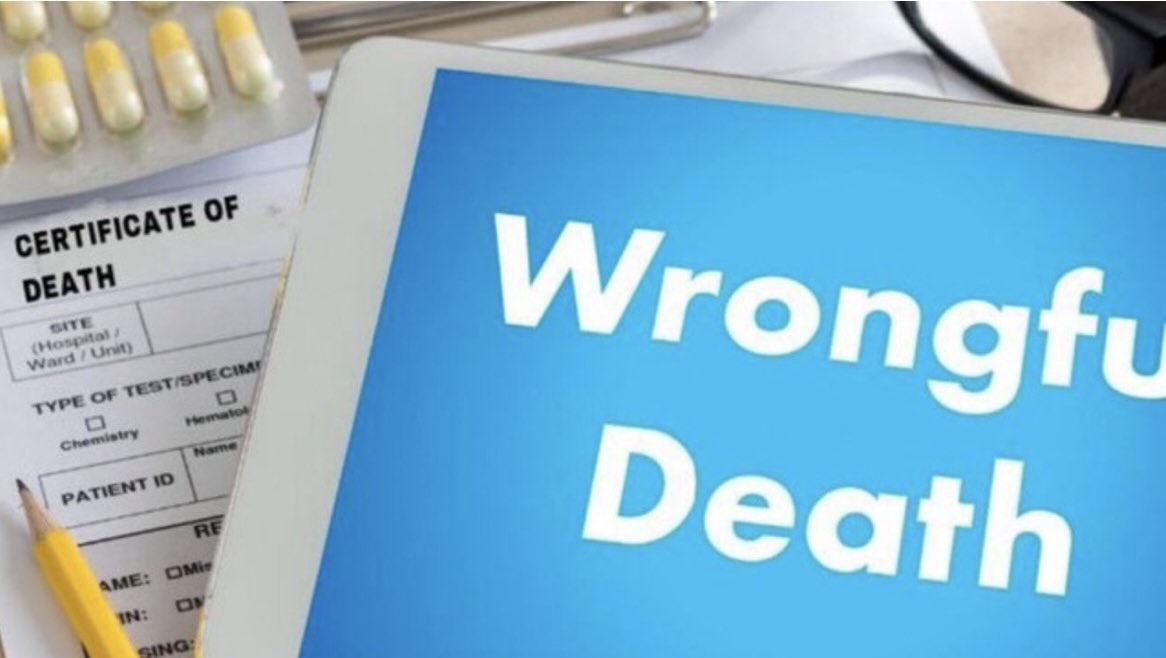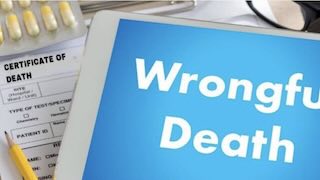May 06 (News On Japan) - Losing a loved one is one of the most painful experiences anyone can go through. When that loss happens because of someone else's carelessness or wrongful actions, it adds another layer of hurt and confusion.

If you've lost a family member this way in New Jersey, you might be wondering what types of compensation are available in New Jersey wrongful death cases. While money can never replace your loved one, it can help ease financial burdens during this difficult time and provide a sense of justice.
Understanding what compensation you may be entitled to can help you make informed decisions during a very emotional time. New Jersey law allows certain family members to recover money for various losses after a wrongful death.
What Is a Wrongful Death Claim?
A wrongful death claim is a legal case filed when someone dies due to another's careless, negligent, or intentional actions. Examples include car accidents where another driver was at fault, medical mistakes by doctors or hospitals, dangerous products that failed or were defective, falls or accidents on unsafe property, and workplace accidents. In New Jersey, wrongful death claims are governed by the Wrongful Death Act (N.J.S.A. § 2A:31-1 et seq.), which allows surviving family members to seek compensation for losses resulting from another party's negligence or wrongful act.
These claims compensate dependent family members for the emotional and financial losses caused by the death, acknowledging the impact on those who relied on the deceased person.
Who Can File a Wrongful Death Claim?
In New Jersey, the lawsuit must be filed by the "administrator" or "executor" of the deceased person's estate. This person is usually named in the person's will or appointed by the court. However, the compensation from the lawsuit goes to family members who were dependent on the person who died, such as:
- The spouse
- Children or grandchildren
- Parents
- Siblings, nieces, or nephews (in some cases)
- Any other relatives who can prove they were dependent on the deceased person
Hiring an experienced wrongful death attorney in NJ, like Adam Rosengard from Rosengard Law Group, can help determine eligible family members and guide you through the complex process of seeking compensation. Their expertise will allow you to pursue the financial recovery your family deserves with confidence and efficiency.
What Types of Damages Can Be Claimed in a New Jersey Wrongful Death Case?
In New Jersey, families may pursue compensation for both economic and non-economic losses after a loved one’s wrongful death. These damages reflect the financial impact and emotional toll caused by their passing. These are the key categories:
Medical Expenses
If your loved one received medical treatment before passing away, those costs can be included in a wrongful death claim. This might cover ambulance fees, emergency room treatment, hospital stays, surgeries, and medications.
Other medical care related to the fatal injury or illness may also be included. This ensures families can seek compensation for the financial burden of medical expenses amidst their loss.
Loss of Financial Support
When someone dies, their family loses potential income, and compensation considers factors like salary, future raises, benefits, and working years. Experts calculate this amount by examining the person's age, health, education, skills, job history, and career path.
For instance, a 40-year-old parent's family might receive compensation for 25 years of lost income, until retirement age, to support their financial well-being.
Loss of Services
Many people contribute to their families through unpaid work, and compensation values these services, including childcare, household chores, cooking, yard work, home repairs, transportation, and financial management.
The court calculates the cost of hiring someone to replace these services, acknowledging the economic value of the person's contributions to their family, even if they weren't salaried.
Pain and Suffering of the Deceased
If your loved one lived for some time between their injury and death, a survival action allows recovery for their physical pain, emotional distress, and awareness of impending death. The compensation depends on the duration of their survival and the extent of conscious suffering they experienced, providing a means to address the harm endured before passing away.
Loss of Enjoyment of Life
This compensation acknowledges the deceased person's lost opportunity to enjoy life, considering factors like activities they enjoyed, hobbies they participated in, relationships they valued, and plans they had made. It addresses the loss of life's experiences and fulfillment, providing a means to compensate for the years of life lost due to another's actions.

How Compensation Is Calculated and Distributed
Understanding how compensation works in practice can help set realistic expectations.
How Amounts Are Determined
To determine fair compensation in wrongful death cases, attorneys and courts often rely on:
- Economic experts: Professionals who calculate future lost income and benefits
- Life expectancy tables: Charts that estimate how many more years the person would have lived
- Household service experts: People who determine the value of household services
- Evidence of expenses: Bills, receipts, and other proof of costs
How Compensation Is Distributed
In New Jersey, the money from a wrongful death settlement or verdict is distributed according to how dependent each family member was on the deceased person. This usually means:
- The court holds a hearing to determine each person's level of dependency
- The judge decides what percentage each family member should receive
- The administrator distributes the money accordingly
For example, a spouse who was financially dependent on the deceased might receive a larger share than a financially independent adult child.
What is the Process of Seeking Compensation
Understanding the process can help you know what to expect if you pursue a wrongful death claim.
Investigation Phase
The first step in proving a case is gathering evidence about what happened and identifying who was responsible. This evidence might include police reports, medical records, witness statements, expert opinions, photos, videos, and employment or income records to build a strong foundation for the claim.
Settlement Negotiations
Most wrongful death cases are resolved through settlements rather than trials. This process includes your attorney sending a demand letter outlining your losses, followed by the responsible party's insurance company responding and both sides negotiating until a settlement is reached.
Trial (If Necessary)
If a fair settlement cannot be reached, your case may proceed to trial, where both sides present evidence and arguments to a judge or jury. If the jury finds the defendant responsible, they then determine the amount of compensation to award.
What Factors Can Affect Compensation Amounts
Several factors can impact the amount of compensation in a wrongful death case, influencing the final award significantly. Some key considerations include:
- Age and health of the deceased person
- Income and future career prospects matter
- The number of dependents affects the compensation amount
- Comparative negligence impacts the final award
Understanding these factors helps families anticipate and manage the compensation process more effectively.
Conclusion
New Jersey's wrongful death laws enable families to recover financial losses after a tragedy, providing compensation for loss of support, household services, medical expenses, and funeral costs, as well as potential damages for the deceased's pain and suffering. Consulting an experienced attorney can help guide the process, calculate claim value, and fight for maximum compensation within strict time limits.















